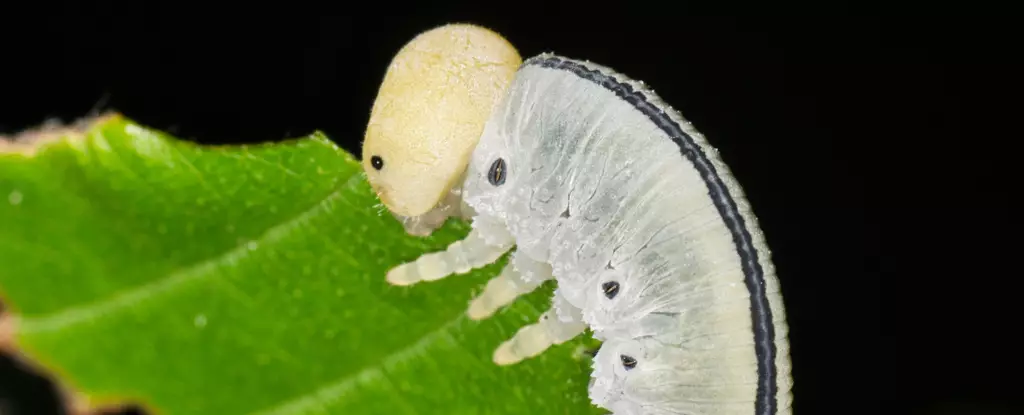The use of artificial lighting in urban environments has been found to have a significant impact on the defense mechanisms of plants against insect herbivory. A recent study conducted by researchers from the Chinese Academy of Sciences discovered that trees growing along illuminated major roads exhibited increased leaf toughness and decreased levels of herbivory compared to trees in natural ecosystems. The findings suggest that artificial light at night can make plants tougher to chew on, forcing insects to seek food elsewhere or go hungry.
The increase in leaf toughness as a result of artificial light exposure has implications for insect abundance and, subsequently, entire ecosystems. The researchers found that lower levels of herbivory led to reduced abundances of herbivorous insects, which could have ripple effects on predatory insects and insect-eating birds. This disruption in the food chain could result in a trophic cascade, impacting the cycling of nutrients through the ecosystem. Leaves with higher toughness decompose slower, further affecting nutrient cycling.
Insect herbivory plays a crucial role in the energy flow pathways within ecosystems. The decrease in herbivory due to artificial light exposure could have far-reaching consequences for ecosystem dynamics. Additionally, the study revealed changes in the types of nutrients present in plant leaves based on light levels and tree species. This highlights the complexity of the interactions between artificial light, plant defense mechanisms, and insect herbivory.
The decline in insect populations globally is a concerning trend that warrants further attention. Insect herbivory is essential for maintaining biodiversity and ecosystem balance. The researchers emphasize the need for additional research to understand the full extent of the impact of artificial light on insect populations and ecosystem dynamics. Factors such as pollution and other environmental variables may also play a role in shaping these interactions.
The study underscores the importance of considering the effects of artificial light on plant-insect interactions and ecosystem dynamics. The findings suggest that artificial light exposure can influence plant defense mechanisms, insect herbivory, and nutrient cycling within ecosystems. As urbanization continues to expand and light pollution becomes more prevalent, it is crucial to assess and mitigate the impacts on biodiversity and ecosystem health.

Leave a Reply